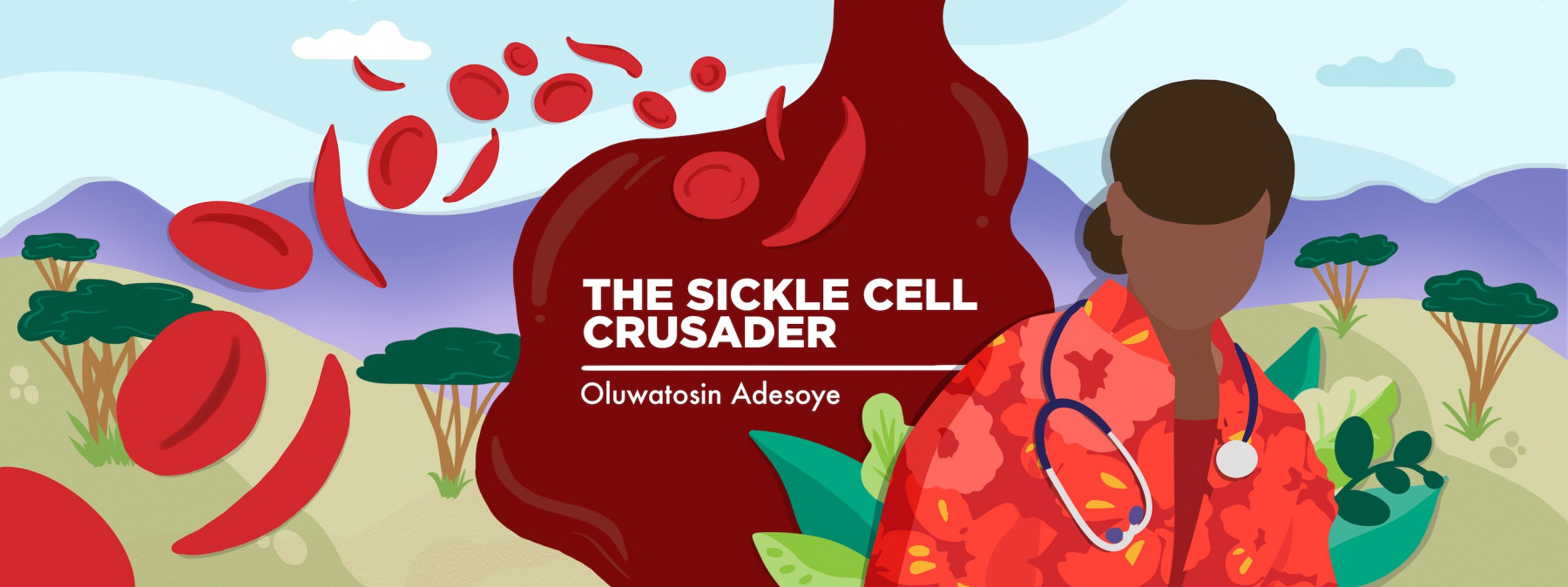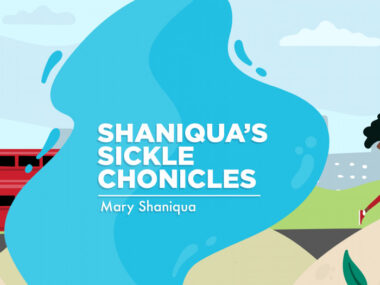Important things I want everyone to know about sickle cell disease
A columnist corrects some common misunderstandings
Written by |

As last year drew to a close, a thought-provoking post in the Sickle Cell Celebs Facebook group inspired me to reflect on what I wish people understood about sickle cell disease. This introspection led me to come up with a long list that I’ve decided to share. There’s a gross lack of knowledge about sickle cell disease, and as a patient and a medical provider, I’d like to correct some common misunderstandings.
The following are important things I think everyone should know about sickle cell disease:
Sickle cell disease isn’t contagious. Rather, it’s a genetic disorder that occurs when a person inherits two abnormal hemoglobin genes, one from each parent. There’s no need for people to run away from sickle cell patients. We’re not contagious!
Looks can be deceiving. Just because a sickle cell patient looks good doesn’t mean they feel good. Family, friends, and colleagues often tell me that I appear well even when I’m suffering internally. Sickle cell disease can sometimes be invisible, so we shouldn’t be judged based on our appearance. Many patients have learned to mask their pain and discomfort.
We aren’t lazy; we’re genuinely tired! Many people assume that sickle cell patients claim to be tired to avoid responsibilities. They’re wrong. When we express fatigue, kindly take us seriously. Fatigue can be a symptom or complication of this disease, one that varies in severity and doesn’t always improve with rest. It may arise from many factors, such as anemia, chronic fatigue syndrome, or organ damage. So when we say we’re tired, please listen to us and allow us to manage the symptom.
Complications vary from person to person. While numerous potential complications are associated with sickle cell disease, it’s important to note that not every patient will experience the same issues. Just because one patient suffers a stroke, for example, doesn’t mean others will face the same fate, even if they have identical genotypes.
Hydration is essential, but it’s not a cure. Adequate hydration is important in sickle cell management because it enhances blood flow, which can help prevent and manage pain. However, many people wrongly assume that adequate hydration can prevent all sickle cell complications. Sickle cell is a multisystemic disorder influenced by multiple factors. It’s entirely possible for a patient to be adequately hydrated yet still face complications.
Don’t judge sickle cell patients too quickly. Many people tend to question how someone could be fine one moment and in pain the next. But sickle cell crises can begin and resolve suddenly. Give warriors grace, and don’t judge us too quickly. Sickle cell pain is unpredictable. It doesn’t follow any rules.
Having daily pain doesn’t mean a patient is a drug-seeker. Being in pain every day isn’t abnormal for individuals with sickle cell disease. Chronic pain syndrome is real and common, particularly among adults. It doesn’t mean we’re seeking drugs.
Disease severity differs among patients. Never compare warriors because sickle cell affects us all differently. Various factors influence disease severity, and not all of them are within our control.
Sickle cell patients often pretend to be OK. But saying we’re OK doesn’t mean we really are. Many of us hide our true feelings because we’re tired of explaining our condition or facing stigma. Don’t assume we’re fine just because we say so.
Sickle cell disease isn’t a death sentence. Medical advancements have improved life expectancy, and many patients live full lives in which they successfully chase their dreams and achieve their goals. Yes, living with sickle cell disease can be challenging, but we can overcome the hurdles with good healthcare, support, and resilience.
Note: Sickle Cell Disease News is strictly a news and information website about the disease. It does not provide medical advice, diagnosis, or treatment. This content is not intended to be a substitute for professional medical advice, diagnosis, or treatment. Always seek the advice of your physician or other qualified health provider with any questions you may have regarding a medical condition. Never disregard professional medical advice or delay in seeking it because of something you have read on this website. The opinions expressed in this column are not those of Sickle Cell Disease News or its parent company, Bionews, and are intended to spark discussion about issues pertaining to sickle cell disease.




Harry Williams
Thank you for this amazing article and information. I truly pray that more individuals see and understand this about Warriors. I appreciate your leadership in spreading the word about what we live through. I pray for good health and a prosperous year for you in 2025.
Jose
Thank you for your article, my wife asked me to read this. She’s a Dominican descent with sickle cell. Also, she’s a champion and sometimes I don’t even don’t understand sometimes tired and I’ve been with her 22 years. I’ve seen my wife get a whole blood exchange. I videoed it without that nurse showing her face husband out there. Be patient with your sickle cell wife and wives. Be patient with your sickle cell man.
Hyacinth George
Thank you very much. So, so True. I'm an aged sickle cell patient.
Olubunmi Adeola BADIORA
I will be 46 come November. I'm married with 4 kids, Twins inclusive. I'm a lecturer by profession in communication. I was diagnosed as a SCD Patient when I was 18 years old. It's not been easy but God has been my sustenance. I have been depressed lately though I don't know why. Just read now that depression is one of its symptoms. Thanks for all you do. I'm happy to read all that you have been doing.